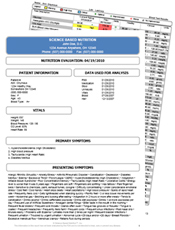Thinking about swapping out soda for a sports drink instead? This may sound like a healthier option, but most sports drinks sold in the United States contain higher amounts of sugar than other beverages. This adds calories to diets and is contributing to the national obesity epidemic.
Over the past three decades, U.S. children and adolescents have significantly increased their consumption of sugar-sweetened beverages, which many people assume only means sodas (1). But the beverages also include sweetened tea, fruit-flavored drinks, punches and sports drinks. A review published by Health Eating Research found that “Though the American Academy of Pediatrics recommends most children and adolescents shouldn’t consume sports drinks, more than 27 percent of parents believe sports drinks are healthy» (2).
Sports drinks are designed to replenish fluids that are lost during physical activity. The sugars in sports drinks provide carbohydrates to the muscles. However our bodies are only designed to sustain high levels of activity for short periods (around two hours). After that, our carbohydrate stores run low, causing us to become fatigued to the point where our bodies now have to rely on fat as fuel.
The liver will begin to break down fat and protein to form glucose, which can then be used for energy. At this point, an athlete may experience symptoms of hypoglycemia, which occurs when blood glucose levels are low. During hypoglycemia, a person may feel extreme fatigue and a near complete loss of energy.
However, for most of us, using a sports drink for routine bouts of fitness or activity is not necessary and water alone is hydrating enough. Children opting for sports drinks while sitting at a desk or inside at school is not advised either due to the sugar content. But what about the drinks that say “low-sugar” or “sugar-free”? Be warned that it likely contains an artificial sweetener which is even worse for you than fructose. You also want to avoid artificial flavors and colors as well.
The hype about coconut water hit the shelves about ten years ago.
Coconut water, not to be confused with coconut milk, has fewer calories, less sodium, and more potassium than a sports drink.
Ounce per ounce, most unflavored coconut water contains:
- 5.45 calories
- 1.3 grams sugar
- 61 milligrams (mg) of potassium
- 5.45 mg of sodium
Compared to Gatorade™, which has (3):
- 6.25 calories
- 1.75 grams of sugar
- 3.75 mg of potassium
- 13.75 mg of sodium
On another note, most Americans don’t get enough potassium either in their diets because they don’t eat enough fruits and vegetables. Coconut water contains 660 mg of potassium vs one banana containing 422 mg (4). Potassium can help lower blood sugar, reduce anxiety and stress, improve muscle strength, and improve electrolyte functions.
Publicists and news articles are recently stating that that coconut water is likely no better for you than plain old tap water. However, have you ever gotten your water tested? Are you aware of toxic elements in your surroundings that could be contaminating your water?
There are unpredictable levels of unregulated contaminants in public water supplies, and there are chemicals intentionally used in water treatments that many experts consider health compromising (chlorine, aluminum sulfate and fluoride) (5).
Robert Slovak, a Mechanical and Astronautical Engineer, has over 30 years of experience in the water treatment industry, written hundreds of articles and presentations on water technology, water quality, and consumer advice for seeking the healthiest water for drinking and bathing. He simply states that “The primary responsibility of any home port of use drinking water system is to reduce the highest amount and the most categories of contaminants» (5).
If your family is drinking the tap water from your home, you may want to invest in a Reverse Osmosis filtrating system. This type of filtration can provide high reduction of virtually every category of contaminant and is convenient as well as easy to install yourself.
Are you still finding yourself dehydrated often even if you are not working out or exercising? Are you experiencing headaches, lightheadedness, fatigue, dizziness, high blood pressure, or increased pulse rate? Dehydration may not be the only factor to consider.
Get a comprehensive blood test and tissue mineral analysis by your experienced nutritionist to determine your exact needs. There may be something underlying that you are missing. Correcting imbalances of toxicities and deficiencies can be done with supplementation and dietary guidelines to help improve your lifestyle.
References:
- School of Public Health. SPH research finds sports drinks just as unhealthy as soda. August 29, 2012. http://sph.umn.edu/sph-research-finds-sports-drinks-just-as-unhealthy-as-soda/
- Healthy Eating Research. June 2012. http://healthyeatingresearch.org/database/#t=sports%20drinks,p=1
- Zelman, Kathleen. The truth about coconut water. http://www.webmd.com/food-recipes/features/truth-about-coconut-water. Accessed on July 30, 2014
- Moss, Michele. Coconut water changes its claims. New York Times. July 26, 2014 http://www.nytimes.com/2014/07/30/dining/coconut-water-changes-its-claims.html
- Slovak, Robert. Quality Healthful Water Matters. Public Health Alert Vol 7 Issue 5 May 2012

